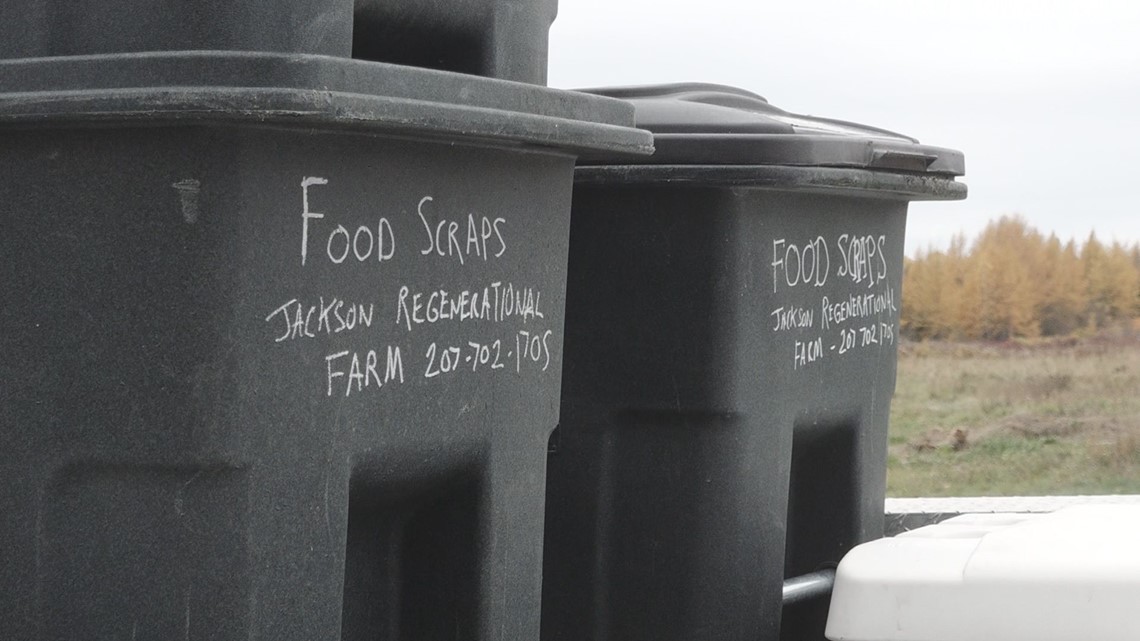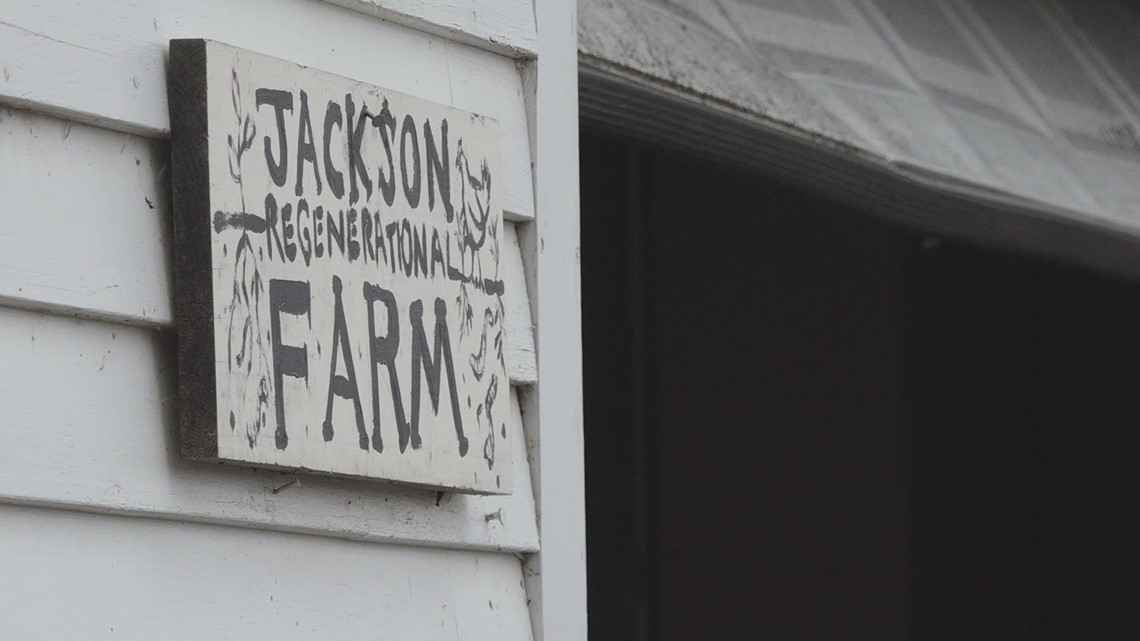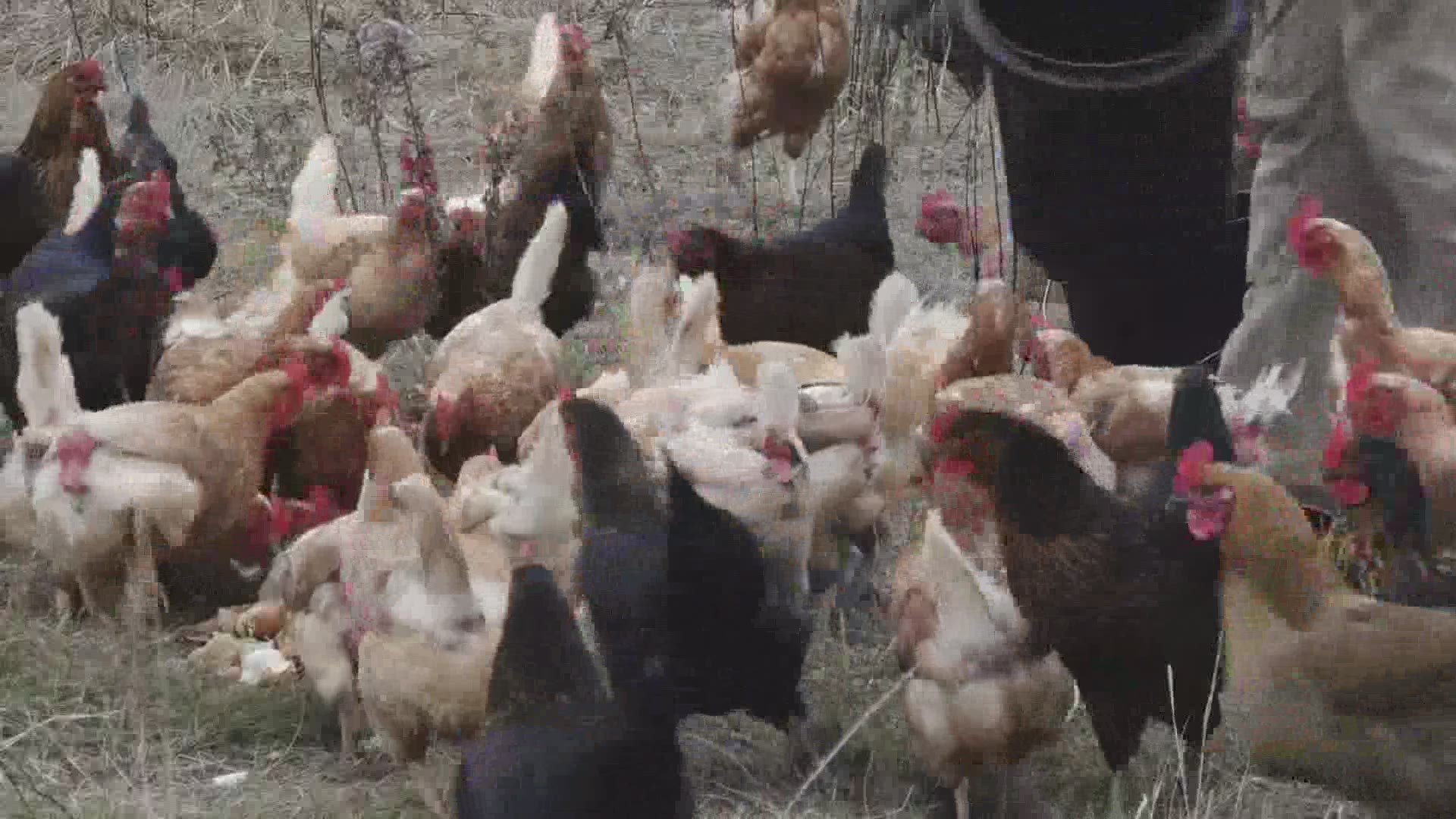ATKINSON, Maine — It’s been a season to forget for many farmers in Maine. The uncertainty associated with the coronavirus pandemic is one thing. The months-long drought that impacted wells and crops, just added on to the challenges agricultural experts faced.
With the first statewide snowfall approaching sooner rather than later, some farms are counting their chickens that they had successful seasons.
Jackson Regenerational Farm in Atkinson just had its best year since Nick Jackson and Sarah Mahan began farming full time. With 100-acres available, the two farm on 70 acres and produce pastured eggs, pastured chicken, and regeneratively raised lamb.
“The drought wasn’t really an issue for us because of the way we manage our livestock and our land,” Nick Jackson said. “We’re actually trying to increase the ecological functioning of the land with our practices.”
These farmers use regenerative agriculture methods like keeping their livestock grazing on one acre of land a day, rotating the chicken coop to use chicken manure to fertilize the land, and feed the animals compost.
“The basic goal of regenerative practices is to reduce the cost and the labor for the farmer,” Tom Gordon, a soil and water conservation coordinator with the Department of Agriculture, Conservation and Forestry said.
“(This practice) builds resilience for farms against weather conditions, climate change, drought, and so forth."


Following these methods helped Jackson grow his business. Once a week he hops into his pick-up truck and heads towards the Bangor region and collects compost buckets that the farm uses from the customer, and in return, he brings the farm right to the table.
“(Customers) get us there each week picking up their bucket, we can deliver our eggs, our chicken, our lamb,” Jackson added.
"Getting out of the truck and walking the neighborhoods has been very key, going door to door and meeting folks and telling people what I was doing, as soon as I started doing that, people started signing on,” Jackson said.
While he hits the road, Mahan and the three kids stay at home. Mahan helps run the farm’s website and email and helps answer any farming questions from customers, usually by video.
“It’s really just that one on one personal connection,” she said. “So, if I get an email, I do my best to meet them where they’re at as quickly as possible with my heart.”


For example, Mahan recently made a video showing a customer how to prepare her garden for the winter.
The two met in Vermont working at a compost company. When they made the move to Maine, providing nutritional dense meat for the family was important.
“So, we decided to raise our own pigs and that’s how we kind of started getting into the livestock farming,” Mahan said.


The three little ones at home are learning first hand how to run a farm, which is all part of the plan Jackson and Mahan said.
“They are learning the ethics of farming, and care and checking eggs and cooking, real food cooking,” Mahan added.
The two plan to expand operations next year after Jackson saw so much success with his door to door routine.

